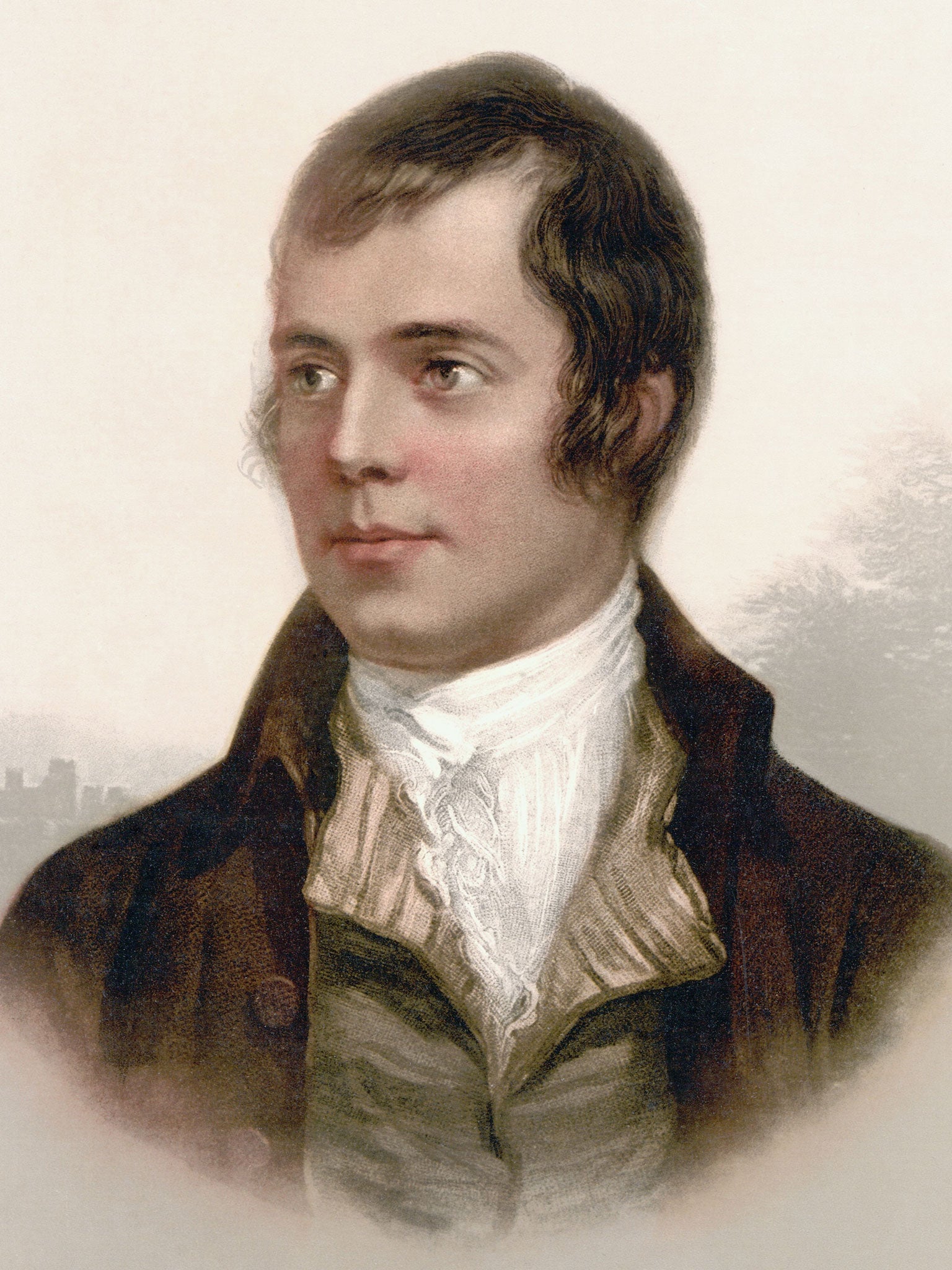
Ah, Scotland’s favourite son.
Yes. A pioneer of Romanticism, Robert Burns has been a cultural icon for Scotland for more than two centuries. Born in 1759, he died in 1796 aged just 37, but his legend lives on. In 2009 he was voted the greatest Scot of all time, and today marks what would have been his 255th birthday.
Did he write anything I might have come across?
Maybe you’ve heard of a little poem called ”Auld Lang Syne”? Despite not actually knowing exactly who or what they are singing about, millions of people around the world launch into this hymn to friendship and good cheer the second the clock strikes midnight every new year. The poem encourages us to put the previous year behind us and look forward to the new one ahead.
What else did he pen?
“O my Luve’s like a red, red rose/That’s newly sprung in June…”
Stop it, you’re making me blush!
He’s also famous for his “Address to a Haggis”, an ode to Scotland’s signature dish. Containing minced sheep’s pluck (heart, liver and lungs) mixed with onion, oatmeal and suet, and encased in the animal’s stomach, this savoury pudding is traditionally enjoyed at Burns Night suppers.
Mmm, sheep’s lungs. Tell me more about these Burns Night suppers…
Burns Night is effectively a second national day and is actually more widely observed in Scotland than St Andrews Day. The supper usually begins with a general welcome and then the Selkirk Grace is said. The haggis is presented and Burns’ “Address…” is read. It opens: “Fair fa’ your honest, sonsie face/Great chieftain o the puddin’-race!” (Fair and full is your honest, jolly face/Great chieftain of the sausage race!”)
Sausage race? I say! Can we eat yet?
Yes. After the “Address” the pudding is cut open and served with neeps and tatties (that’s turnips and potatoes, don’t you know). At the end of the meal a toast to the immortal memory of Burns is given, during which a speaker gives an overview of his life and work, and then “Auld Lang Syne” is sung.
I’ll raise a wee dram to that.
Well, you’ll need something to wash that sheep’s pluck down.
Subscribe to Independent Premium to bookmark this article
Want to bookmark your favourite articles and stories to read or reference later? Start your Independent Premium subscription today.

Join our commenting forum
Join thought-provoking conversations, follow other Independent readers and see their replies